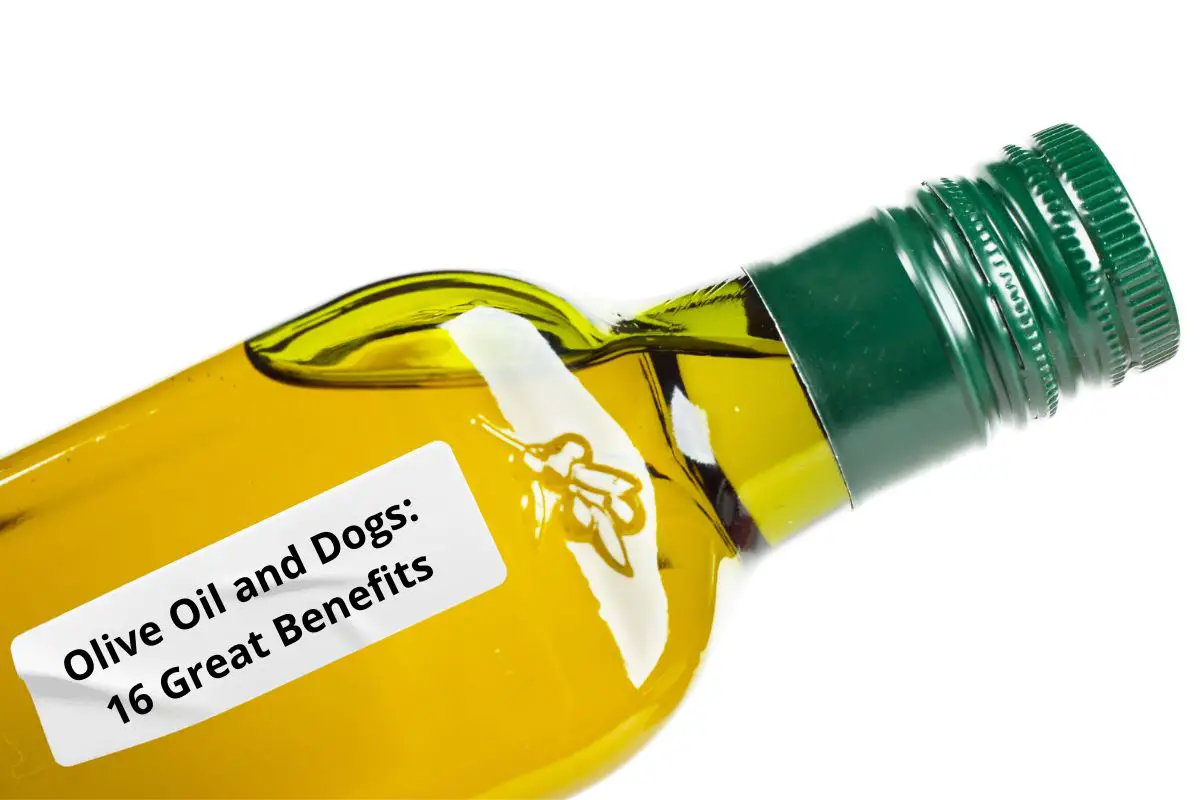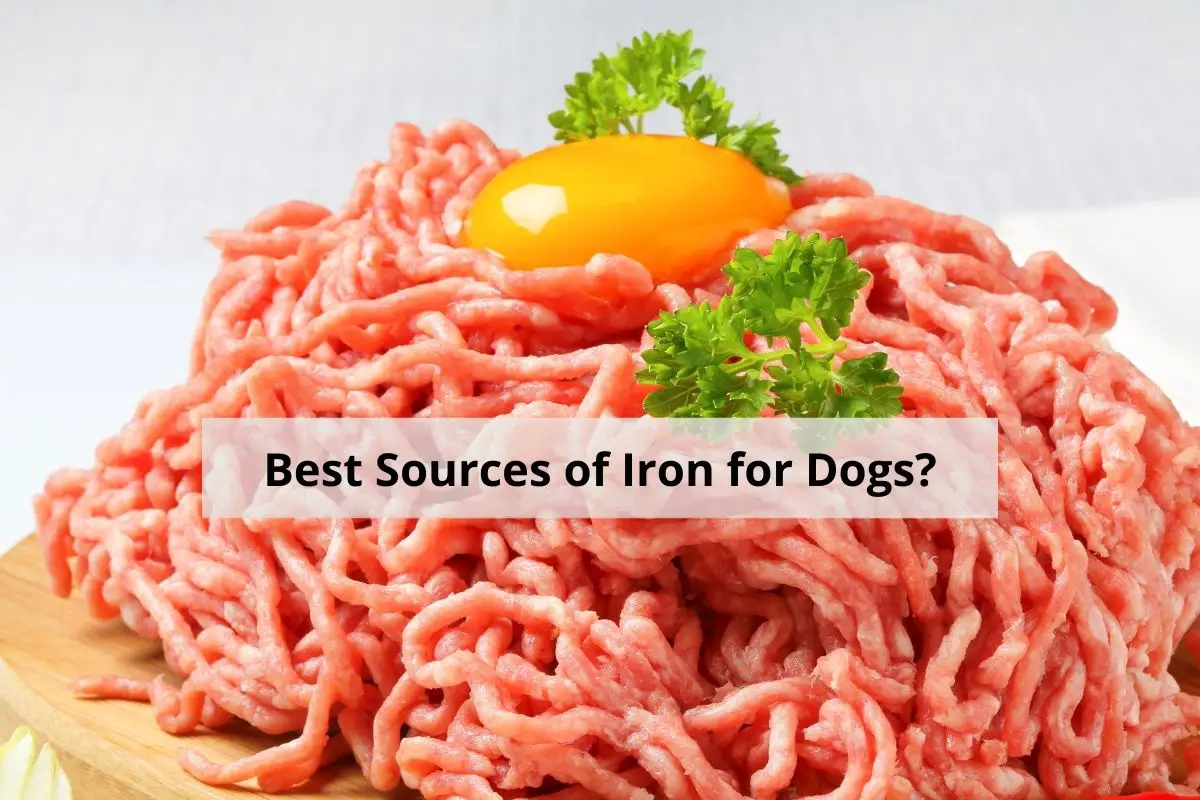This post contains affiliate links.
Dogs are curious creatures that like getting into things they are not supposed to. It seems that they will try anything once, including fish food, if they can get to it. But can fish food hurt your precious pooch?
Fish food is not bad for dogs because most fish food ingredients are also used in dog food. There is some concern about ethoxyquin, a preservative added to fish meal, but the minute concentration will not affect your pet. If your dog eats fish food, monitor him for signs of gastric distress.
Dogs seem to be willing to try just about anything, and it’s good to be cautious about what your dog eats. Let’s find out why you shouldn’t worry too much if your dog gets into the fish food and which foods you should worry about.
Table of Contents
Is Fish Food Toxic to Dogs?
There are different levels of toxicity. Food can be mildly toxic and have a temporary effect, such as an upset stomach. Food can also be extremely toxic, leading to serious health problems and possibly death. Luckily, the ingestion of fish food is not toxic.
If your dog eats some fish food, the worst that can happen is gastric distress, leading to diarrhea or vomiting. If your dog’s symptoms are more serious, it is more likely that your pet ate or drank something else.
One exception would be frozen fish food, which may contain tapeworms if it was not prepared properly. If this is the case, you will know soon enough because your fish will get sick also. So if your dog ate frozen fish food and your fish gets sick from the food, then have your pet checked for worms.
If you have heard that fish food contains arsenic and mercury, you can relax. The amount of them in fish food is small and undetectable. Both can also be found in dark meat fish such as salmon, swordfish, bluefish, or expensive fish not used for fish flakes.
Lastly, the effects of either are cumulative. Your dog would have to eat large quantities of fish food over a long time for it to cause serious health problems.
What Are the Ingredients of Common Fish Foods?
Let’s look at the ingredients of fish foods to see if they contain ingredients that are harmful to canines. Some fish have specific dietary requirements, but most fish in a community tank are omnivores. If you feed your fish flake foods, they are getting both animal and plant foods in their diet.
Fish foods will include a variety of these ingredients:
- Fish and fish byproducts – Fish or fish meal, bloodworms, earthworms, krill, shrimp, or squid meal are used as the primary protein sources.
- Plants – Fish food often has spirulina, a blue-green algae, as a source of amino acids, vitamins, and plant protein. Some foods include algae meal, which is a low-quality algae.
- Other additives – Wheat germ is often added because of its nutrients. Brewer’s Dried yeast is sometimes used as a protein source, and rice bran is included to provide fiber. Some foods use corn gluten meal as a filler.
What About Preservatives in Fish Food?
There has been some controversy about preservatives in fish food, in particular ethoxyquin. This preservative had been approved as a safe food additive to keep fats in food from becoming rancid.
However, in the 1990s, a debate about the preservative’s safety led the FDA to ask that dog food manufacturers reduce ethoxyquin use.
Most manufacturers instead chose to stop using it, and the controversy died down. It has resurfaced in recent years as consumers discovered that ethoxyquin was a preservative in fish meal.
Preservatives need to be added to fish food. Otherwise, the high levels of fatty acid in fishmeal can spontaneously combust if it is not adequately preserved. Coast Guard regulations require that bulk fish meal that is transported by sea have a preservative.
Preservatives such as BHT could also be used, but manufacturers prefer ethoxyquin because it is cheaper. Not all fish foods have ethoxyquin, but there is so little in it that it should not affect your dog.
What About Other Pet Foods and Supplies?
If your pooch gets into pet food, you should not be too worried. More worrisome would be if your dog eats bird food. Birdseed has the potential to cause two digestive problems, one expensive and the other potentially life-threatening.
The expensive one would be gastrointestinal obstruction. If your dog eats enough seeds, they can get caught in the intestines. Constipation could lead to a hefty vet bill as your pet might need an enema and a hospital stay.
The life-threatening problem would be bloating or gastric dilation-volvulus (GVD). The birdseed can cause fermentation in your dog’s stomach. The fermentation left unchecked will lead to enough gas in the stomach that a dog struggles to breathe, and blood cannot be adequately pumped to the organs that depend on it.
Foods Dogs Should Not Consume
Food poisoning in dogs can be grouped into two categories. Those foods are more likely to cause digestive distress and those that are toxic. If your pet eats a poisonous food, you need to contact your vet immediately. Consumption of less serious food requires you to monitor for signs of illness, such as diarrhea, vomiting, hyperactivity, or lethargy.
|
Toxic—Immediate vet contact |
Less serious—monitor closely |
|
|
Can a Dog Eat Fish?
Since fish is a common ingredient in dog food, it seems like feeding fish to a dog shouldn’t be a problem. Is that true?
Digestive problems occur mainly when fish or other meat is raw or undercooked. Although the risks are lower, E. coli and salmonella that cause digestive issues in humans can also affect dogs. There is controversy about dogs and raw food diets, and we will not go into that here. But as long as your dog doesn’t show signs of food poisoning, I wouldn’t worry about dogs eating cooked fish.
However, the type of fish that your pet shouldn’t eat is Goldfish crackers. This snack food contains minute traces of two ingredients that are toxic to dogs, specifically, garlic and onions. Onion powder is listed on the label, but garlic is one of the ingredients. Granted, those two are less than 2% of a cracker, but is your pooch going to stop at one?
Also, a high quantity of salt is toxic to dogs. Dogs require far less salt than humans, which is 50-100 mg per day versus the 1500 mg that we need. A serving of goldfish crackers (55) has 250 mg of salt. If your dog gets into a package of Goldfish, or other salty foods, watch for signs of salt toxicity, such as excessive thirst, lethargy, and lack of appetite. Make sure he has access to water.
How Can I Help a Dog With an Upset Stomach?
If your pet is suffering from an upset tummy and your vet has said it’s not a serious or life-threatening condition, here are three home remedies to help your dog feel better:
- Fasting. To help your dog clear out its intestinal tract, avoid giving it food for 12-24 hours.
- Ice Chips. Both diarrhea and vomiting will lead to dehydration; however, giving your dog too much water can further upset your pet’s stomach. Ice chips are an excellent way to monitor water consumption.
- Pumpkin. Veterinarians often recommend small amounts of 100% canned pumpkin because of the high fiber content and vitamins. Some commercial dog foods have added pumpkin to their recipe to promote healthy digestion. Treat it as a medicine, using a teaspoon or two, and not half a can.
Conclusion
Fish foods do not contain ingredients that are considered toxic or dangerous to dogs. If your dog accidentally eats some, the worst that can happen is an upset tummy, leading to vomiting or diarrhea. Feeding fish food to a dog regularly is not recommended.
The nutrients in fish food are designed for fish, and dogs have different nutritional requirements. Plus, it would be easier and less expensive to buy some doggie vitamins if you are looking for additional nutrients.
Sources
- Dog Health Coach: Is Salt Bad for Dogs?
- Consumer Reports: 8 Toxic Foods for Dogs
- Consumer Reports: Should You Feed Your Pet Raw Food?
- Rate My Fish Tank: Do You Know What You are Feeding Your Fish?
- Pet Food Industry: Ethoxyquin Redux
Mrdogfood.com is a participant in the Amazon Services LLC Associates Program, an affiliate advertising program designed to provide a means for sites to earn advertising fees by advertising and linking to Amazon.com. We also participate in other affiliate programs which compensate us for referring traffic.




